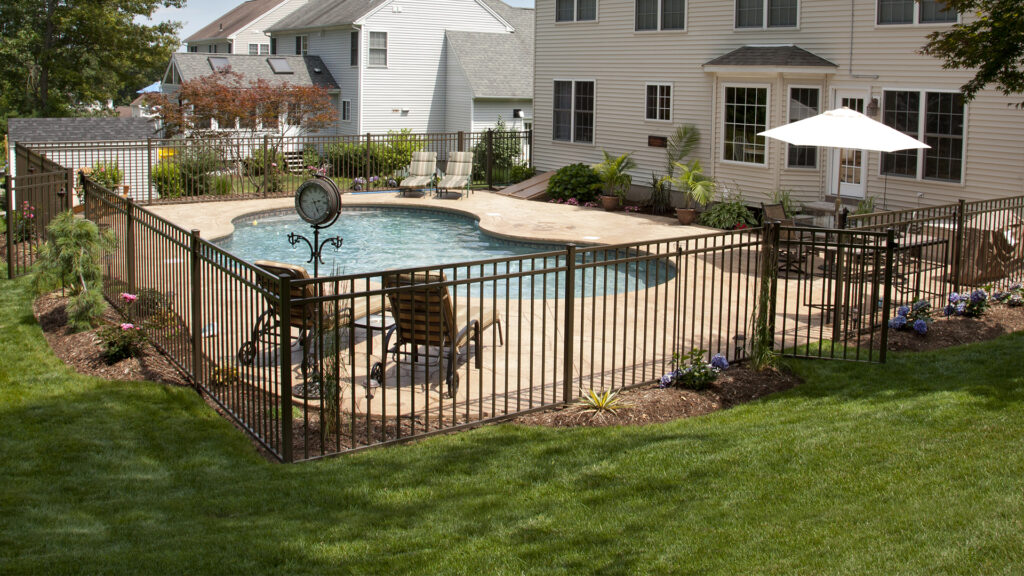The type of fence you need to build around your pool depends on local regulations, safety standards, and your personal preferences. Pool fences are essential for preventing unauthorized access, especially for the safety of children and pets. Here are some general guidelines to consider:
- Check Local Regulations: Different regions have specific regulations regarding pool fences. These regulations may stipulate the height of the fence, the spacing between slats, the type of gate, and other safety features. Make sure to check with your local building department to ensure compliance.
- Height: In many places, pool fences are required to be a minimum height to prevent easy climbing. Common heights range from 4 to 5 feet, but local regulations will dictate the specific requirements.
- Material: Pool fences are often made of materials like aluminum, wrought iron, vinyl, wood, or mesh. Each material has its own advantages and considerations. Aluminum and wrought iron are durable and resistant to weather, while mesh can be a good option for temporary or removable fencing.
- Spacing and Design: The spacing between slats or bars is important. Regulations may dictate specific distances to prevent children from squeezing through. The design of the fence should discourage climbing.
- Self-Closing and Self-Latching Gates: Pool gates should be self-closing and self-latching. This ensures that the gate is not left open accidentally, providing an added layer of safety. The latch should be positioned out of reach of small children.
- Visibility: Choose a fence that allows for visibility into the pool area. This can help you keep an eye on swimmers and ensure safety.
- Removability (if needed): If you live in an area with seasonal changes or only want the fence up temporarily, consider a removable pool fence. Mesh pool fences are often used for this purpose.
- Professional Installation: To ensure that the fence is installed correctly and meets all safety standards, it’s advisable to hire a professional fence installer.
Remember to consult with local authorities, and if possible, get advice from professionals who specialize in pool safety. Pool safety is of utmost importance, and compliance with local regulations is crucial to prevent accidents and ensure a secure swimming environment.


I’m impressed, I must say. Seldom do I come across a blog that’s both educative and interesting, and
let me tell you, you’ve hit the nail on the head. The problem is something which not enough folks are speaking intelligently
about. I’m very happy I found this in my hunt for something regarding this.
I think that what you composed made a bunch of sense.
However, what about this? what if you composed a catchier title?
I mean, I don’t want to tell you how to run your blog, however suppose you added a post title that makes people desire more?
I mean What type of fence do I need to build around my pool?
– Haul and Install Landscaping is a little vanilla. You could look at Yahoo’s front page and note how they create
news headlines to get people interested. You might add a video or a related picture or two to grab people excited about what you’ve
written. In my opinion, it might make your posts a little livelier.